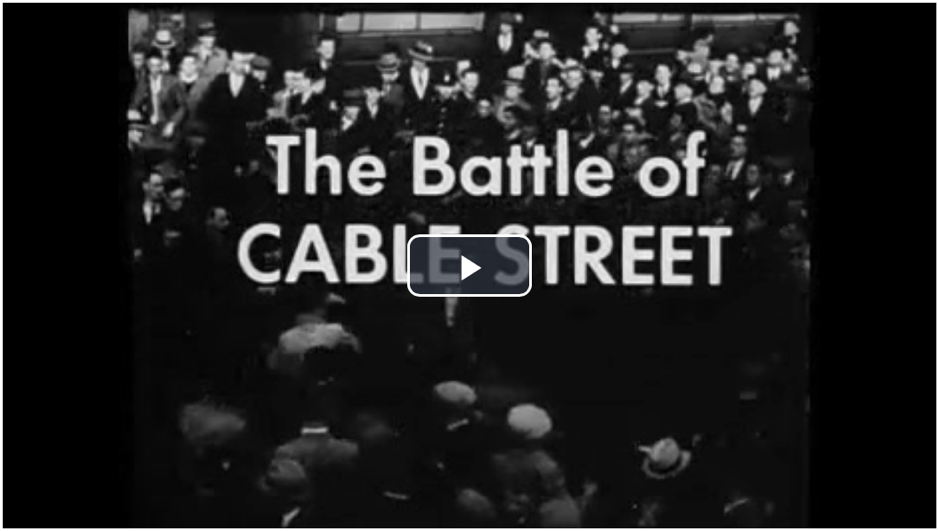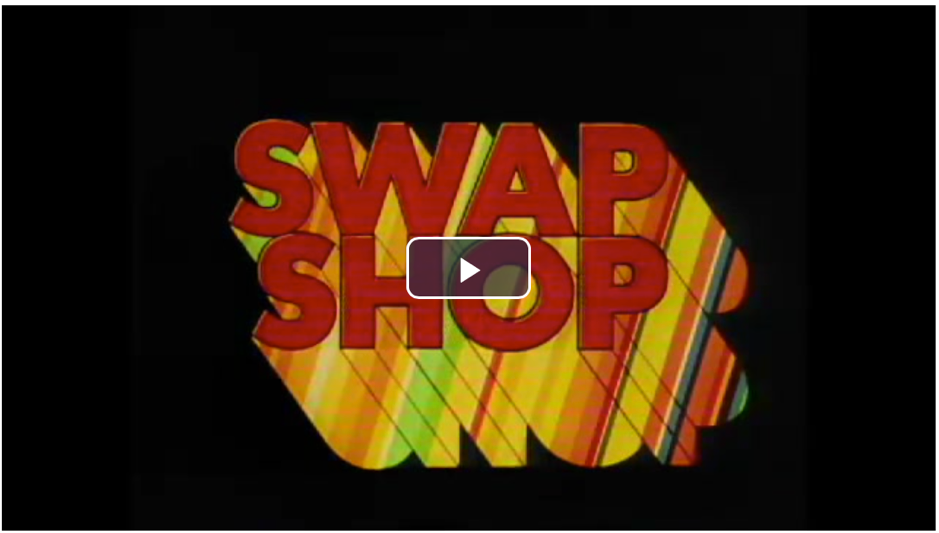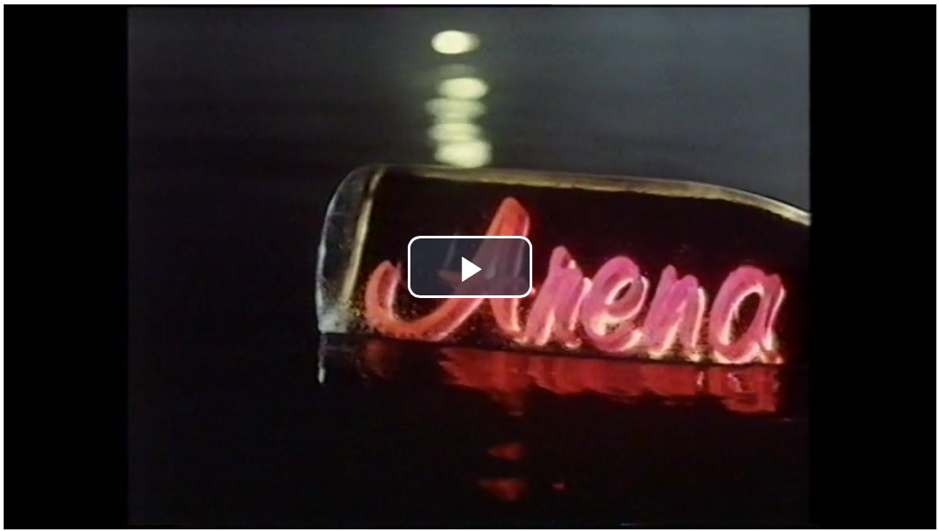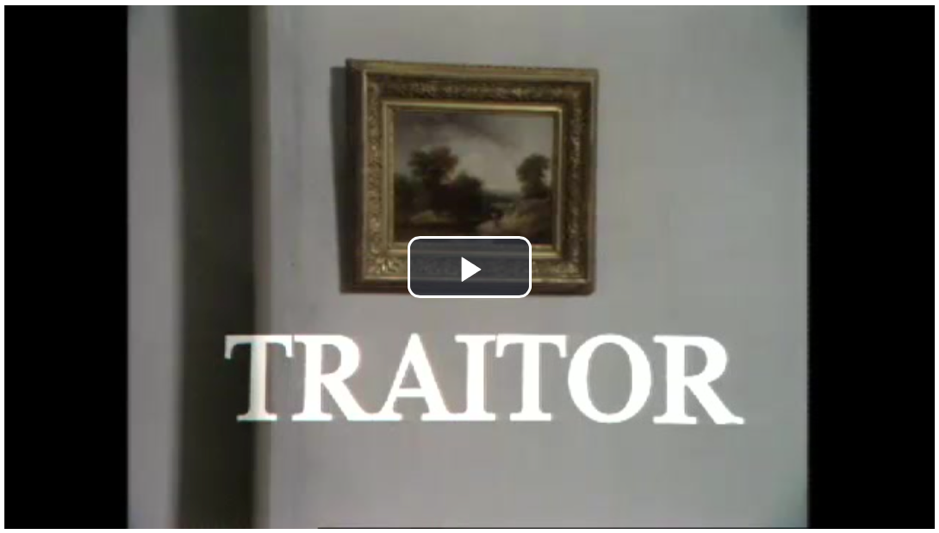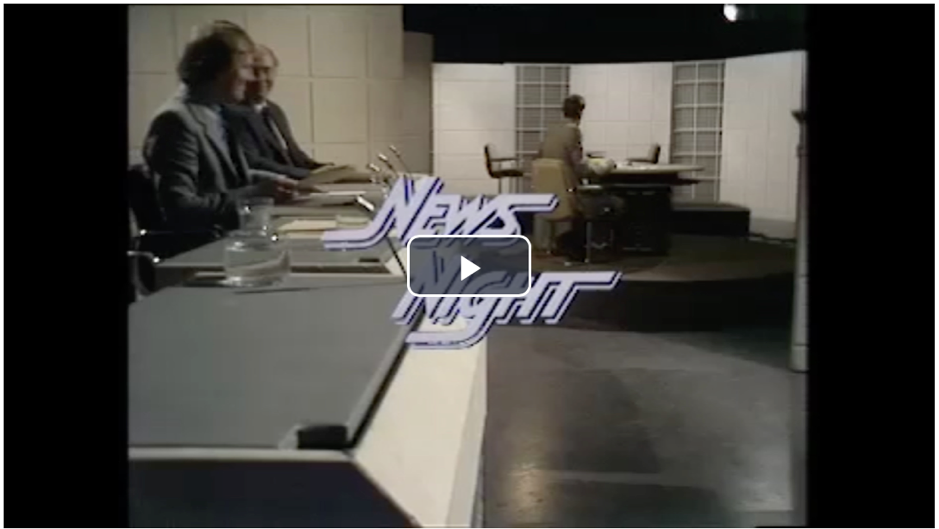by Gil Toffell, Learning on Screen
It is a truism to observe that the defining media form of the second half of the twentieth century was television. In Britain, as elsewhere, effects on the psycho-social order were felt profoundly following the mass adoption of the medium. One does not have to look far for examples. Within the intimacy of the home world historic events (the war in Vietnam, the Apollo space missions) were witnessed in their horror or wonder; while the imagined community of the nation was conjured into being in the mass simultaneous viewing of the spectacle of state pageantry, sporting events and soap opera cliff-hangers. Had Camus’ philosophical novel The Fall emerged a decade after its 1956 publication date, its sardonic evaluation of modern man - ‘he fornicated and read the papers’- would surely have required updating to ‘he fornicated and watched the News, an episode of Corrie, and maybe Match of the Day if United were on’.
Britain’s oldest and most influential broadcaster of television is, of course, the BBC. It is impossible to understand post-war British life in isolation from the organisation’s output, and as such, the BBC programme archives must surely be ranked as UK broadcasting’s most significant collection of televisual assets. Hugely diverse, the panoply of the corporation’s historic productions – drama, current affairs, sport, light entertainment – are stored within these vast holdings. Not only does this encompass footage of virtually every figure of scientific, cultural, artistic, political and sporting achievement of the last 100 years, but, equally importantly, a sprawling audiovisual record of everyday life remains.
Given the status of the BBC collections it represents a major development in access to historic mass culture that the corporation recently announced that as part of its centenary celebrations it is enabling educational users in the UK to view content currently stored in its digitised broadcast archive. From January 2022 a huge swathe of television transmissions, going back to the immediately post-war period, will become available to watch for the purposes of teaching and research. Access to the materials is to be granted exclusively through an approved streaming platform at educational institutions holding an Educational Recording Agency (ERA) licence – virtually every university, college and school in the UK.
For users of Learning on Screen’s BoB service work has already begun transferring some of the choicest assets from the BBC collections to the streaming platform. Undertaking a systematic process of selection over two thousand programmes have thus far been uploaded. This includes all Arena and Play for Today transmissions extant in the archive, as well as highly culturally important, though now rarely seen fare such as early episodes of Horizon, interviews with public figures as diverse as Angela Davis, Stephen Sondheim and Indira Gandhi, and landmark popular entertainment from Swap Shop to Les Dawson. This work is ongoing and coming months will see a focus on television plays of the 1960s, and reportage from the Thatcher years.
The criteria for selecting broadcasts for upload to BoB has been based on critical recognition and influence, as well as an anticipation of teaching and research needs. Over the course of the COVID-19 pandemic both teaching staff and students have become ever more adept at mining online resources for educational materials. The inclusion of historic BBC materials has replenished BoB with a new richness, and users will discover that actively searching the platform repays their efforts. What follows is a small taste of the fascinating materials already uploaded.
Yesterday’s Witness: The Battle of Cable Street
Running from 1969 until 1977 Yesterday’s Witness collected oral histories from individuals who had participated in an event of social or cultural significance in Britain’s past. This 1971 episode focusses on London’s East End, and the ‘Battle of Cable Street’ that took place in October of 1936 when Oswald Mosley’s fascist organisation attempted to march en masse through a working class Jewish neighbourhood. The documentary offers an insider’s account of the events, providing moving testimony of the fear that ran through a vulnerable community, details of intercommunal cooperation in resistance, and an unrepentant Mosley attempting to justify his group’s actions on free speech grounds. The final ten minutes of the broadcast contain very rare footage of the then present East End, and a resurgent far right attempting to reorganise in pubs and local streets in opposition to the increasingly apparent presence of people of colour in Britain.
Multi-Coloured Swap Shop
Broadcast live and filling almost three hours of the BBC1 Saturday morning schedule Multi-Coloured Swap Shop’s ground-breaking format helped redefine children’s television. While some content now feels hopelessly dated - do today’s preteens harbour much interest in the Thurrock Drum and Trumpet Corps? – it is clear why the show proved popular from its 1976 launch. Swap Shop took great pride in the participation of its young audience, with phone calls from viewers constantly taken and fan letters read out. Essentially unscripted, a genuinely informal atmosphere to proceedings reigns. In this episode viewers are taken behind scenes into the corridors of Television Centre, while presenter Keith Chegwin is caught unawares when the studio cuts to his preparations for an outside broadcast on an overcast Blackpool beach. Clearly in debt to the culture of 1960s pirate radio – a lineage enhanced by host Noel Edmonds’ medallion man jewellery and Radio 1 DJ-isms - rock and pop music are central to the show. Even if cleaner cut and less anarchic than its ITV rival TISWAS, Multi-Coloured Swap Shop nevertheless represents a radical departure from an earlier era of children’s broadcasting. By the mid-1970s even the BBC had recognised a different British childhood had emerged, and its orientation around consumption and mass-culture could not be denied.
Arena: C.L.R. James’s First Cricket XI
Amongst the many innovations the landmark arts and culture series Arena helped pioneer was the themed evening of television broadcasting. This episode was shown as part of an 1986 night of documentaries focussing on West Indian culture entitled Caribbean Nights, and sees the Trinidadian writer and activist C.L.R. James select his definitive cricket team. For James, cricket was a lifelong passion, an artform, and – as explored in his classic book Beyond the Boundary - a prism through which to understand the politics of colonialism, class and nation. Here he shares his deep knowledge of the game’s history and offers a razor sharp analysis of the technique and mental approach of its greatest players. Remarkably, he displays a way of thinking that breaks down the object of his critical attention into its fundamental categories with perfect economy and clarity – a trait he displayed in all his intellectual work. To spend half an hour in James’ company is to feel more intelligent.
Play for Today: Traitor
Running from 1970 until 1984 Play for Today brought the contributions of some of the most talented and influential dramatists working in Britain to BBC1’s Thursday evening schedule. Several productions in the series went to on win BAFTAs, including this 1971 offering from Dennis Potter for John Le Mesurier’s compelling lead performance. Starring as Adrian Harris, a former controller in British intelligence now defected to Moscow, Le Mesurier transcends his comic actor status as a bitter and unstable idealogue giving an interview to a group of antagonistic journalists visiting from Britain and the US. The piece contains much that is typical of Potter – autobiographical fragments, a blending of the social and the personal, and a non-linear narrative structure that would be reemployed in later, more celebrated, work. In Traitor, Potter was keen to explore the inner lives and motivations of men such a Kim Philby and Guy Burgess – individuals he found contemptable. This he accomplishes by contrasting the obstreperous and drunken Harris with images of his earlier self in a series of flashbacks - the final instance of which erupts as a devastating revelation of the true depths of Harris’ isolation.
Newsnight
For over forty years Newsnight has been the BBC Television’s flagship show for analysing the major news stories of the day. Dating from 1980 this is the very first episode, originally scheduled for transmission on January 28th, but due to industrial action eventually going out two days late – a situation referenced by anchor Peter Snow in his opening welcome. Surveying the, now decades old, individual stories covered it is striking how many of these past events still overshadow our present: the Soviet invasion of Afghanistan; legislation to curb the power of organised labour; Margaret Thatcher’s attempts to get a £1billion rebate from the Common Market. One thing that has changed is the place of women in the Newsnight studio. As seen here, the programme in its original guise did not feature women in the role of principal presenter, instead more commonly appearing as an auxiliary presenter - pejoratively known as the "'Newsnight wife syndrome" - to read the headlines in a mid-show recap.
At the outset of the COVID-19 pandemic the near overnight transition to online teaching at universities placed huge demands on staff and students. Yet while teachers and learners felt they had been plunged into a wholly unfamiliar educational environment, it now appears the radical changes to course delivery that were implemented will prove to be an acceleration of trends already in process. Blended learning seems destined to become a far more prominent feature of tertiary education, and if it is to succeed course modules will continue to require a thoughtful redesign. To allow that to happen educators require first class resources, and this includes audiovisual media readily accessible to the sector. It is heartening to see the BBC recognising this challenge and expanding its offering in such a generous manner.
For more information on how Learning on Screen members can access broadcasts from the BBC archives please click here.
About the Author
Gil Toffell is Academic Research Manager at Learning on Screen, and an archival and oral historian interested in scenes of diasporic media exhibition. His book Jews, Cinema and Public Life in Interwar Britain (2018) is published by Palgrave MacMillan
